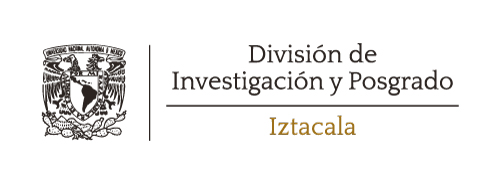ÁVILA MORENO FEDERICO

Ubication:
Biomedicine Unit, Laboratory 1.
Contact:
Phone: 5556231333. Ext. 39808
Email: f.avila@unam.mx

Information:
Federico Ávila-Moreno graduated with a Bachelor’s degree in Biology from the National Autonomous University of Mexico (UNAM) in 1999. He earned his Master of Science degree in 2001 and a Doctor of Science degree with a specialization in Molecular Biomedicine in 2006 from the Center for Research and Advanced Studies of the National Polytechnic Institute (CINVESTAV-IPN). Between 2006 and 2010, he worked as a postdoctoral researcher and an associate researcher at the Research Unit of the National Institute of Respiratory Diseases (INER, ‘Ismael Cosío Villegas’) in Mexico City. During this period, he conducted studies on high-frequency chromosomal aberrations (Genomics) and patterns of genomic DNA methylation and histone codes (Epigenomics) in solid tumors of patients with lung cancer at various clinical stages receiving medical care at INER.
Since 2011, Dr. Federico Ávila-Moreno has been a Full Professor at Level C, a PRIDE Level D member, holds a Level II SNI-CONACYT (National System of Researchers) distinction, and serves as the Head of Laboratory 12 at the Biomedicine Unit (UBIMED) of the Faculta de Estudios Superiores Iztacala (FES-Iztacala) at the National Universidad Nacional Autonoma de Mexico (UNAM).
In 2011, at UBIMED, Dr. Federico Ávila-Moreno founded Laboratory 12, which is dedicated to the study of lung diseases and the epigenome of lung cancer. The lab’s goal is to conduct translational research on both non-malignant and malignant lung diseases, utilizing various experimental approaches based on DNA microarrays and next-generation sequencing (NGS), chromatin immunoprecipitation linked to NGS (ChIP-NGS), non-coding RNA biology, as well as mechanisms of genetic and epigenetic regulation for the detection and clinical assessment of biomarkers associated with therapy response and clinical prognosis in patients with lung diseases.
His work on the study of the epigenome allowed him, in 2015, to engage in discussions and analysis of the lung cancer epigenome with the group of Dr. Peggy Pharnham, a founding member of the ENCODE project for epigenome research, during an academic stay at THE UNIVERSITY OF SOUTHERN CALIFORNIA (USC), Health Science Campus, Keck School of Medicine, at The Norris Comprehensive Cancer Center in Los Angeles, California, USA.
To date, Dr. Ávila-Moreno has published 46 scientific articles and has supervised the graduation of 27 undergraduate, master’s, and doctoral students, with an additional 4 students currently in progress. Furthermore, since 2022, he has served as the representative of the Director of FES-Iztacala on the Academic Committee of the Doctorate Program in Biomedical Sciences (PDCB) at the UNAM’s Postgraduate Unit.
In 2018, he was awarded the Aida Weiss-PUIS Prize for the best applied research work in cancer genomics. Additionally, he received the award from the Mexican Pharmaceutical Council and COFEPRIS for directing the best doctoral thesis at UNAM focused on epigenomics in lung cancer therapy.
Since 2018, he has been an active member of the International Association for the Study of Lung Cancer (IASLC), and since 2023, a member of the American Society of Gene and Cell Therapy (ASGCT). Furthermore, based on his research experience in the field of translational pulmonary biomedicine, he has been appointed as an Associate Editor of the International Journal Molecular Therapy (CellPress Editorial), a high-impact scientific dissemination platform in the field of gene and cell therapy for human degenerative diseases.
Currently, Dr. Ávila-Moreno is expanding his international research collaboration with the University of Groningen in the Netherlands, focusing on the severity of chronic obstructive pulmonary disease (COPD) and lung cancer. This work is in collaboration with the group of Professor Irene H. Heijink in The Department of Pathology & Medical Biology, Experimental Pulmonology and Inflammation Research at the Faculty of Medical Sciences, University Medical Center Groningen, The Netherlands.”
